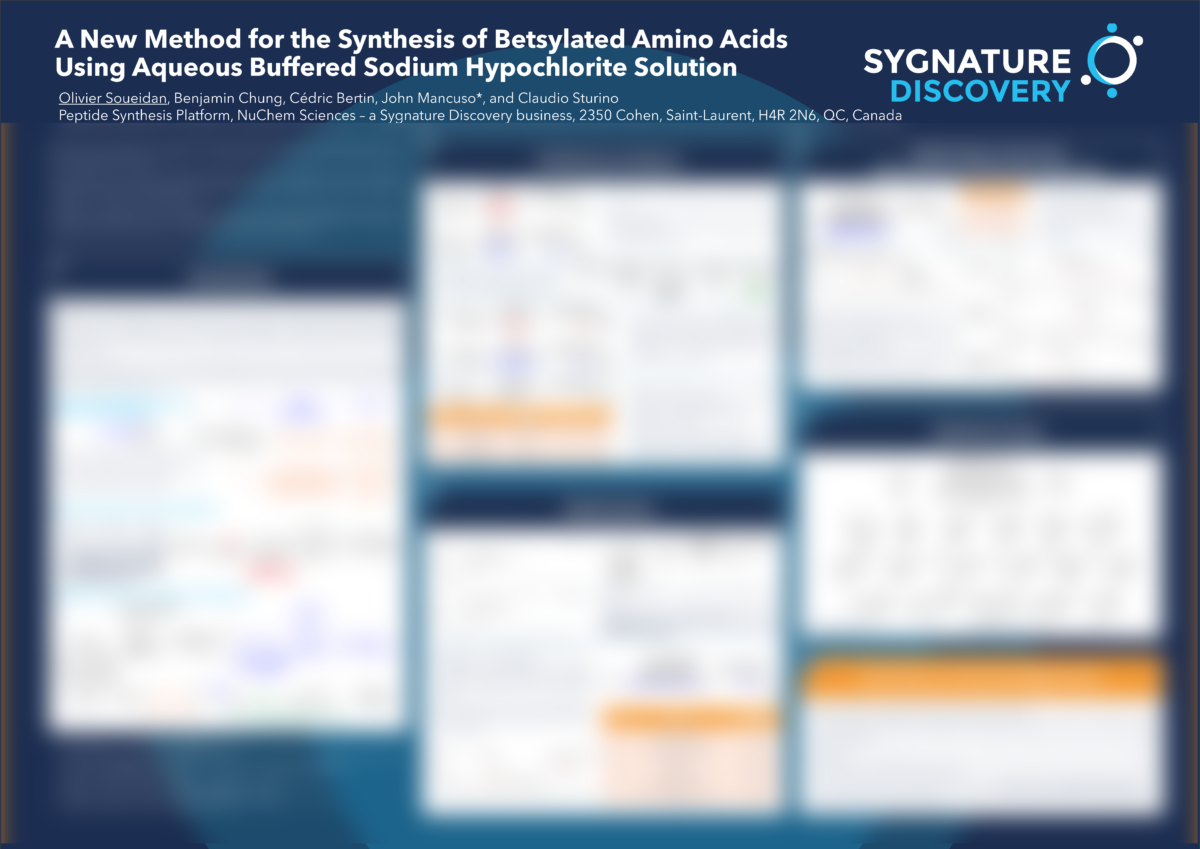A New Method for the Synthesis of Betsylated Amino Acids Using Aqueous Buffered Sodium Hypochlorite Solution
We report a new method for the synthesis of N-benzo[d]-thiazol-2-sulfonyl (Bts, betsyl)-protected amino acids, yielding building blocks amenable to solid-phase peptide synthesis (SPPS) in one step from their corresponding free amino acids.
The procedure uses sodium benzo[d]-thiazol-2-sulfinate (sodium betsylate) and aqueous oxidative conditions to generate unstable benzo[d]-thiazol-2-sulfonyl chloride (Bts-Cl) in situ. Preliminary analyses and optimization revealed the importance of pH control for sufficient conversion, achieved using either carbonate or phosphate buffers.
Preparation of a dipeptide using betsylated phenylalanine indicated that epimerization does not occur during the betsylation process. The betsylated amino acid can be cleanly isolated from crude reaction mixtures by acid/base extraction in most cases. This method has enabled the synthesis of a library of betsylated amino acids containing various protected and unprotected side chains.

